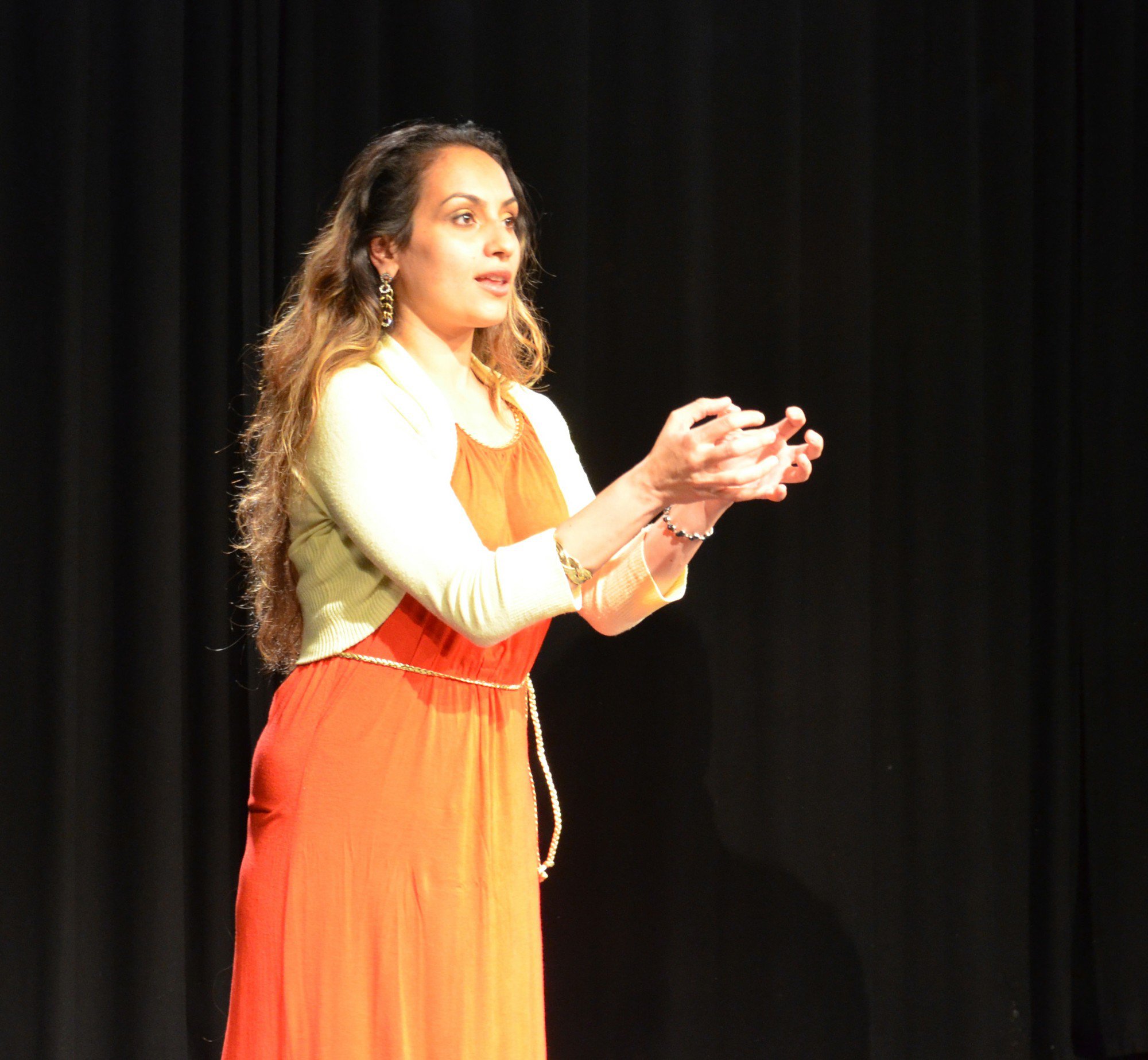Mehda Zolfaqari: We must dare to talk about boundaries and freedoms in art
May 23, 2019

The festival Kloden i sentrum is approaching, and we talked to the artistic council about their visions for Kloden, their thoughts on performing arts for children and young people, and about Kloden i sentrum.
Mehda Zolfaqari is a storyteller and member of Fortellerhuset. She often brings out unknown sources, stories and perspectives, including interpreting religious texts from a female perspective, and uses stories from the Quran in interreligious and intercultural dialogue. Mehda also works with multilingual, Iranian and Persian stories. She has previously worked at NRK, including in children's radio and Kulturnytt.
What kind of expectations do you have for Kloden?
I hope that Kloden will reflect diversity. Oslo is multicultural and Kloden must be a place where everyone can recognize themselves and a place that brings out the diversity of perspectives in artistic expression. I hope it can become a meeting place and an accessible venue for artists and young people. Personally, I'm keen to combine art with being a social activist. I would like some of the performances at Kloden to be followed by debates involving young people, so that it becomes not only an arena for art, but also for dialog and enlightenment.
"It's interesting to explore the intersection between freedom of expression and artistic freedom, and to explore where the boundaries lie. The debates often become so polarized, and we have to dare to go into the uncomfortable topics and talk together about boundaries and about freedoms in art and satire. I want young people to speak out and become aware of these things. I think it's cool to break out of stereotypes in performing arts and I like performances that break with this. It's nice when you can be encouraged to choose an art form regardless of background and appearance.
What are your thoughts on sitting on the artistic council?
It was so nice to be asked! Everyone on the council contributes different perspectives, although my starting point as a storyteller is perhaps less well known. Being on the artistic council is a big responsibility. For every performance we choose, we also choose something away, and we have to take that seriously. People put their souls into what they make.
You work closely with young audiences, can you share some experiences of meeting them?
I've been traveling around with a performance about Abraham for four years. Together with a Bible storyteller, I've visited almost all of Norway with the show, where we tell the story of Abraham from the Bible and the Koran. I find that it opens up when we bring storytelling into the classroom, when we let the words and the story create the inner images. There is some fear of touching when we talk about faith, and it has varied greatly how much discussion there is with the students after the performances. It's interesting to see that the multicultural pupils and pupils at Christian schools are often very knowledgeable about the stories we tell, so there is more frequent conversation and discussion afterwards. At the cathedral schools there are many who know more than us, so we learn something too!
How do you work with the material you present?
I'm an oral storyteller, but I process the texts, so those of us who do this work become a kind of stage writers. The script is created while we play on the floor, and we write it down afterwards. I use traditional material and mix it with my own material. At the moment I'm working on a text based on the Persian poet Rumi, and it had to be rewritten a lot. It will be a performance in Persian, Sami and New Norwegian all at once, with music and dance.
Are you ready for Kloden i sentrum?
I'm really looking forward to Kloden i sentrum! And I'll try to catch as many of the performances as possible.